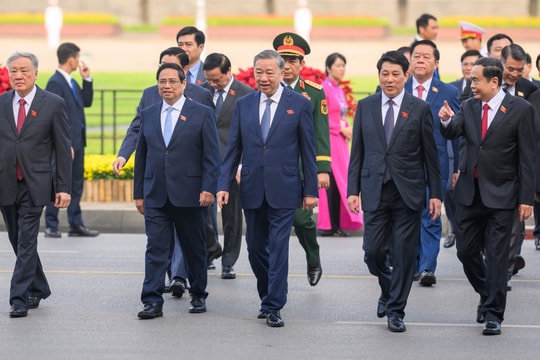The last working week of the 4th Session, 15th National Assembly
The draft laws to be voted on include: Law on Inspection (amended); Law on Petroleum (amended); Law on Anti-Money Laundering (amended); Law on Anti-Domestic Violence (amended).
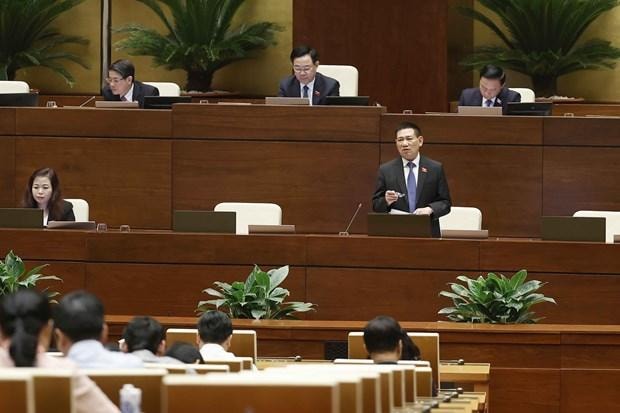 |
| Minister of Finance Ho Duc Phoc spoke to explain and clarify a number of issues raised by National Assembly deputies. (Photo: Doan Tan/VNA) |
During the last working week of the 4th Session (November 14-15), the National Assembly voted to pass a number of draft laws and resolutions.
The draft laws to be voted on include: Law on Inspection (amended); Law on Petroleum (amended); Law on Anti-Money Laundering (amended); Law on Anti-Domestic Violence (amended).
The draft resolutions voted on include: Resolution promulgating the National Assembly's session regulations (amended); Resolution on piloting a number of specific mechanisms and policies for the development of Buon Ma Thuot city, Dak Lak province; Resolution on piloting the granting of the right to select and use car license plates through auction; Resolution on the results of the thematic supervision of "Implementation of policies and laws on practicing thrift and combating waste in the period 2016 - 2021"; Resolution on questioning and answering questions; Resolution of the 4th session of the National Assembly (including the content on extending the implementation period of Resolution No. 54/2017/QH14; regulations on applying the statute of limitations for disciplinary action against cadres, civil servants, public employees and the content on adding information on "place of birth" to passports issued to Vietnamese citizens).
An important content of the working week is that the National Assembly will discuss the draft Law on Land (amended) and the draft Law on Bidding (amended).
According to the Government's Submission, amending the Land Law is necessary to perfect the land law system in accordance with the socialist-oriented market economy in the context of international integration; resolve overlaps and problems arising from practice; strengthen land management in terms of area, quality, economic value, etc., harmonizing the rights and interests of the State, land users and investors.
Along with that, promoting the commercialization of land use rights, developing a healthy real estate market; promoting land resources, creating momentum for our country to become a developed country with high income; at the same time establishing a modern, transparent and effective land management system associated with promoting administrative reform and digital transformation; promoting democracy, limiting land-related complaints.
The development of the Law on Bidding (amended) aims to continue to create a complete, synchronous, and unified legal framework on bidding and procurement using state capital; at the same time, overcome the situation of formal bidding, improve competitiveness, publicity, transparency, and economic efficiency in this activity. The draft Law consists of 10 Chapters and 98 Articles.
Compared with the 2013 Law on Bidding, this Law has amended 75 articles, added 21 new articles, kept 2 articles, and abolished 12 articles./.

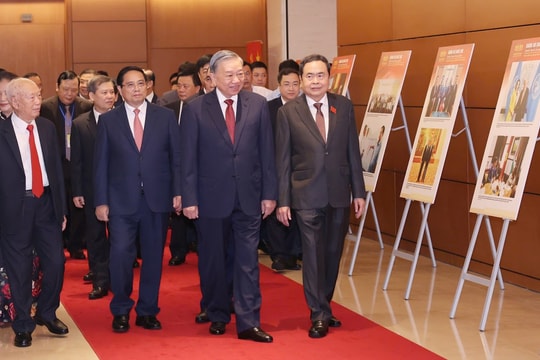
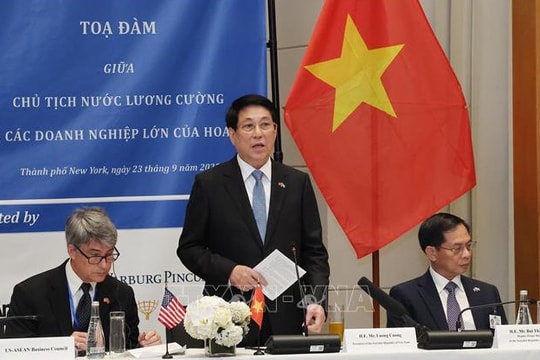
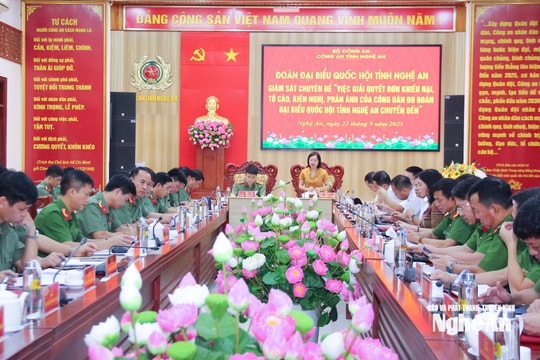
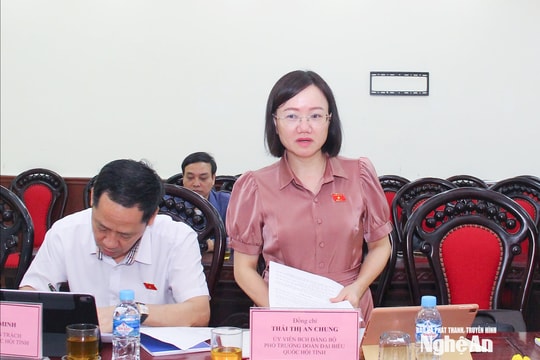
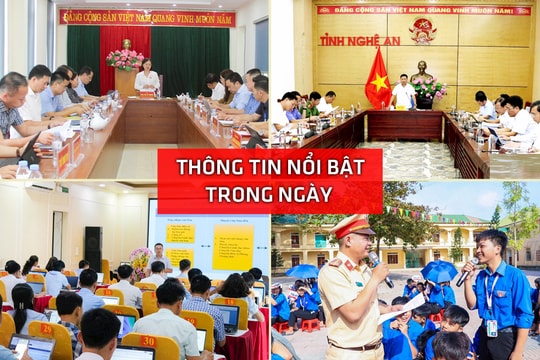
.jpg)
